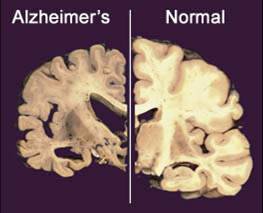TRENTON, N.J. – For Alzheimer’s patients and their families, there’s hope from new studies starting up and insights from recent ones that didn’t quite pan out.
If the new studies succeed, a medicine that slows or even stops progression of the brain-destroying disease might be ready in three to five years, said Dr. William H. Thies, chief medical officer of the Alzheimer’s Association. The group assists patients and caregivers, lobbies for more research and helps fund studies.
“The number of smart people working on this problem means to me we’ll begin to manage it better in the very near future,” Thies said. “It may be as short as three years away.”
But that’s only if government and other sources provide tens of millions of dollars for additional research and more patients join clinical studies.
Scientists are targeting what they believe are the mechanisms to arrest a disease that steadily steals patients’ personality and ability to remember, think and care for themselves.
n A vaccine is in mid-stage testing, and drugmakers shy about funding expensive treatment tests could start as many as 30 studies once they’re more confident that their approach is sound, Thies said.
n Early next year, the first study to try to prevent Alzheimer’s begins — in people a decade away from symptoms but who have a genetic mutation that causes early onset Alzheimer’s. It will include three drugs that each attack the country’s No. 6 killer in a different way.
n And in May, the Obama administration unveiled an ambitious national plan to fund new research, better train those caring for Alzheimer’s patients and help families get needed services via a new website, www.alzheimers.gov.
The number of Alzheimer’s patients in the United States is expected to jump from the current 5.4 million to 16 million by 2050. Costs for care, mostly borne by taxpayers, could skyrocket from roughly $200 billion this year to $1.1 trillion in 2050. The few treatments available only ease symptoms temporarily.
On Monday, drugmaker Merck & Co. announced that it has just begun the first combined mid- and late-stage study of a BACE inhibitor.
That’s a new type of drug designed to slow mental and functional decline by limiting production of amyloid beta, the protein that’s the main ingredient in brain-damaging amyloid plaques considered the most likely cause of Alzheimer’s.
After safety testing of the drug MK-8931 in about 200 patients, the 78-week study, known by the acronym EPOCH, will quickly expand to as many as 1,700 patients. That phase will test the daily pill at three different doses, compared with a dummy pill.
Combining study phases should shave some time from the years-long, and often billion-dollar, research process. If MK-8931 works,
EPOCH would give Merck one of the two major patient studies needed to win approval from government regulators, said Darryle D. Schoepp, Merck’s head of neuroscience research. Merck also has some backup compounds and plans other studies, including some on patients very early in the disease, Schoepp said.
Copy the Story Link
Send questions/comments to the editors.



Success. Please wait for the page to reload. If the page does not reload within 5 seconds, please refresh the page.
Enter your email and password to access comments.
Hi, to comment on stories you must . This profile is in addition to your subscription and website login.
Already have a commenting profile? .
Invalid username/password.
Please check your email to confirm and complete your registration.
Only subscribers are eligible to post comments. Please subscribe or login first for digital access. Here’s why.
Use the form below to reset your password. When you've submitted your account email, we will send an email with a reset code.